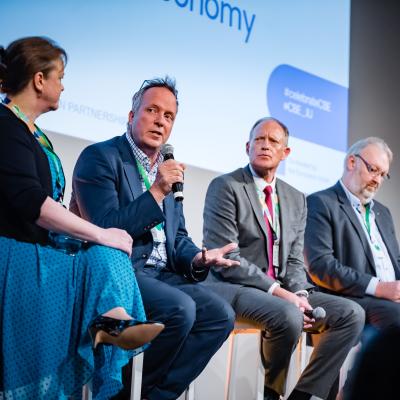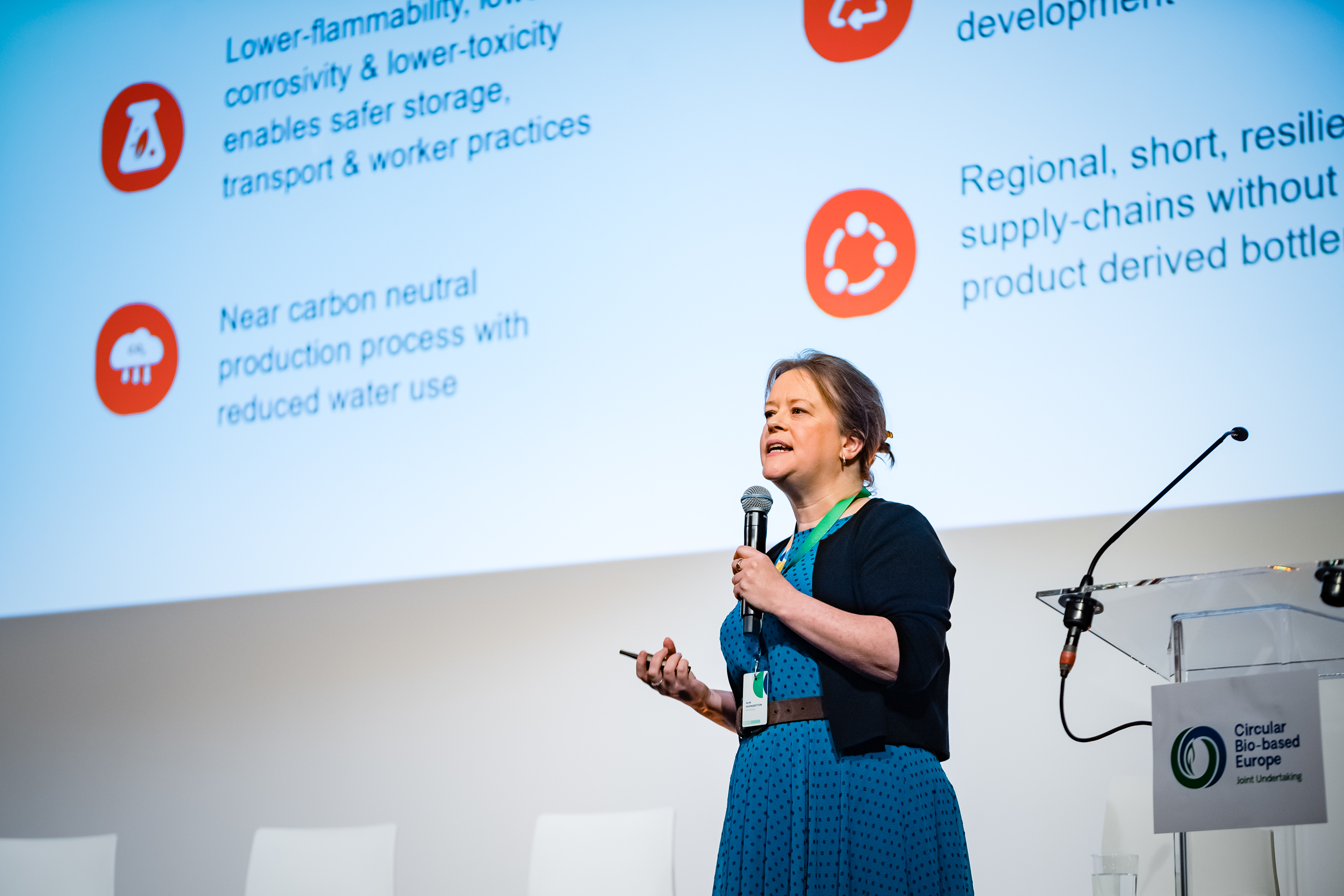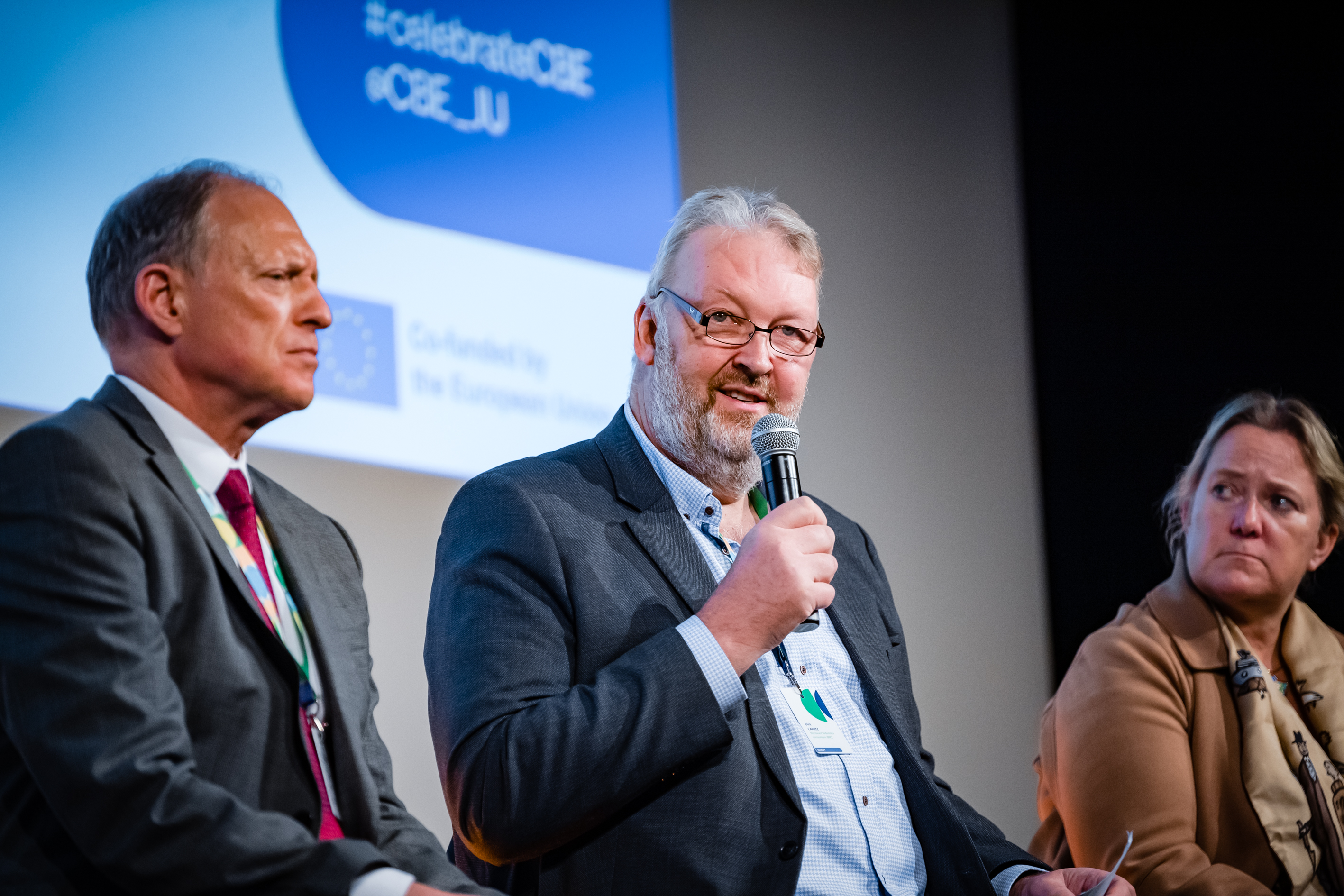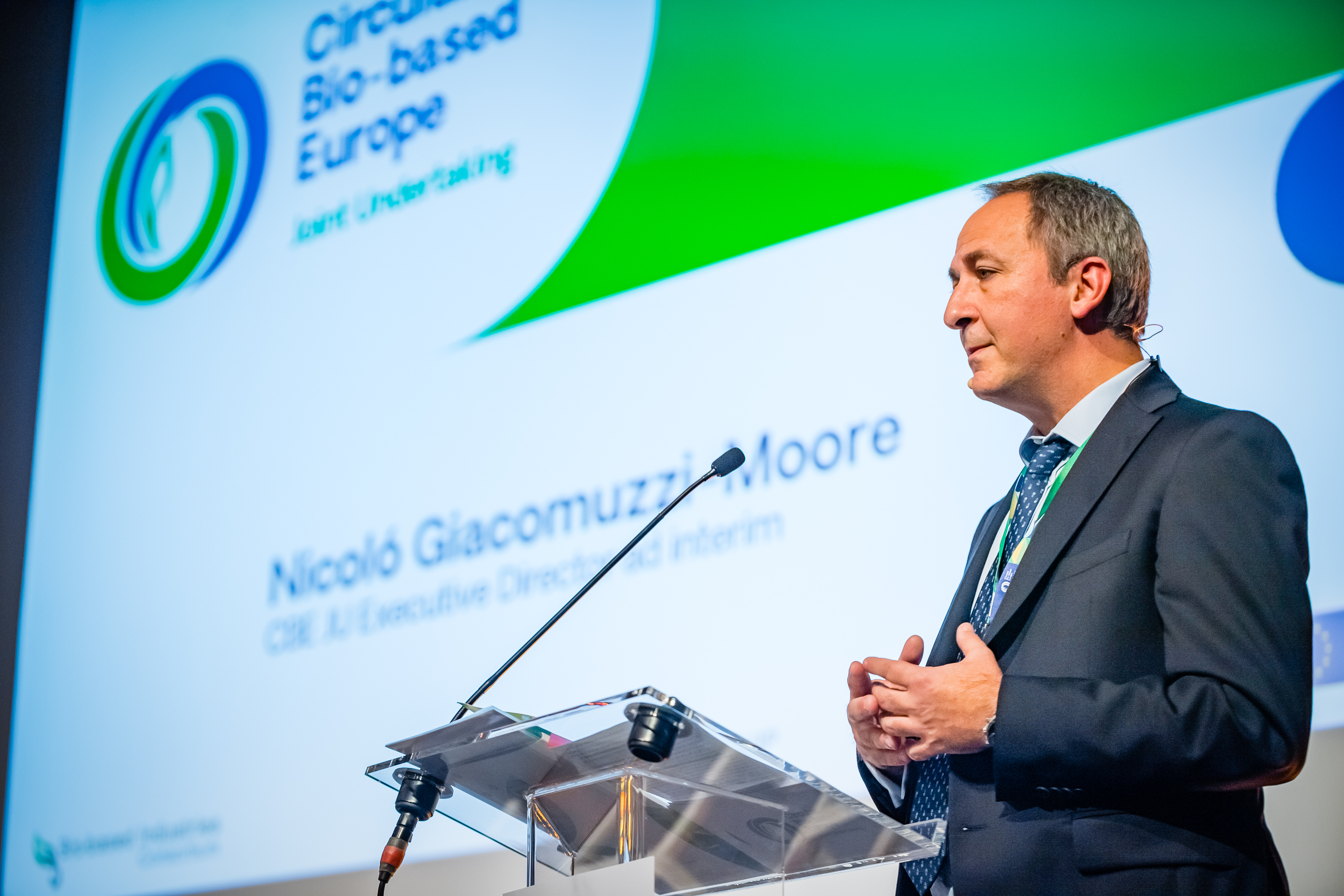
Earlier this autumn, the circular bio-based community celebrated the full establishment of the CBE JU at an event outlining the successes of the previous partnership and the challenges and opportunities ahead. One year on from the official launch of CBE JU, industrial leaders shared their vision with national and European Commission representatives on the challenging, yet promising, future of the sector.
Prepared to maximise the potential in challenging times
Inflation is a big challenge for Europe, yet the bio-based industries are especially well-positioned to embrace it and transform it into an opportunity. ENOUGH’s CEO, Jim Laird, representing the PLENITUDE biorefinery which is producing sustainable bio-based proteins, stated: ‘Inflation works in two ways: it affects the market, but it also represents an opportunity. Animal protein faced 60% inflation this year. We think we will be able to offer our protein at a lower price than the animal one, making our bio-based alternative affordable and sustainable.’
The same holds for the sustainable packaging industry. Representing the PEFerence flagship project, which develops circular bio-based packaging, Avantium Managing Director Bas Blom, explained how the bio-based industries could grow in inflationary circumstances: ‘The whole market is suffering from inflation. Our fossil competitors are undergoing the same pressure. The good news is that we use energy much more efficiently. Moreover, replacing fossil fuels with sustainable alternatives enables us to be more competitive and to turn it into an opportunity.’
Replacing fossil fuels with sustainable alternatives makes us more competitive and turns the current inflation into an opportunity.
Avantium Managing Director Bas Blom
With a broader perspective, Sara Hickingbottom, CIRCA General Manager, representing the ReSolute flagship project that develops safe and bio-based chemicals, highlighted the need for all industries to fight climate change: ‘The big players producing the fossil-based chemicals resist our innovations, but climate change is here, and we need everybody working together to avoid it.’ Furthermore, Hickingbottom asked for better integration of the circular bioeconomy into the international efforts to fight climate change: ‘It is for all of us to ensure that the frameworks enabling sustainable alternatives like renewable carbon integrate the bio-based industries.’

Sara Hickingbottom, CIRCA General Manager, introducing the ReSolute flagship project
Fruitful collaboration for an ambitious future
CBE JU’s founding partners and representatives of the national public sector complemented the beneficiaries’ perspective. Kristin Schreiber, Director for chemicals, food and retail ecosystems at the European Commission pointed out the institution’s commitment to the partnership: ‘CBE JU has demonstrated that it is important to have private-public partnerships in an area which is in full development and needs some push in scaling up.’ Moreover, Director Schreiber acknowledged the critical role of European small businesses in the CBE JU programme: ‘The best innovation comes from SMEs. In that regard, we have overachieved our target of small businesses’ participation, which is exceptional.’
We have also brought new sectors into the bioeconomy and attracted foreign investments in Europe.
BIC Executive Director Dirk Carrez
From the private partner’s perspective, BIC Executive Director Dirk Carrez listed some of the partnership’s main achievements since it was first established under the BBI JU programme: ‘Rather than only stimulate innovations, we brought them to the market. We have set up new value chains, and as a result, we have sparked new collaborations between companies and sectors. We have also brought new sectors into the bioeconomy and attracted foreign investments in Europe.’

BIC Executive Director Dirk Carrez
The chairperson of the CBE JU’s States’ representatives' group Agata Foks introduced the European countries’ view on the relevance of the bioeconomy for a sustainable future by saying that ‘we need to redesign our economy considering the criteria of sustainability. The bio-based sector is key for this green recovery. We can bring circularity into the mainstream and make Europe greener, safer and more sustainable for all.’
Bright green and blue future ahead

CBE JU Executive Director Nicoló Giacomuzzi-Moore
To wrap up the discussion, CBE JU Executive Director Nicoló Giacomuzzi-Moore summarised the three takeaway messages from the discussion: ‘First, the geopolitical context brings not only challenges but opportunities for the bioeconomy; second, sustainable finance and funding are key for Europe’s green growth; and third, the future is a mix of green and blue, and certainly bio-based.’
You may now watch the insightful presentations and discussions in the video:


